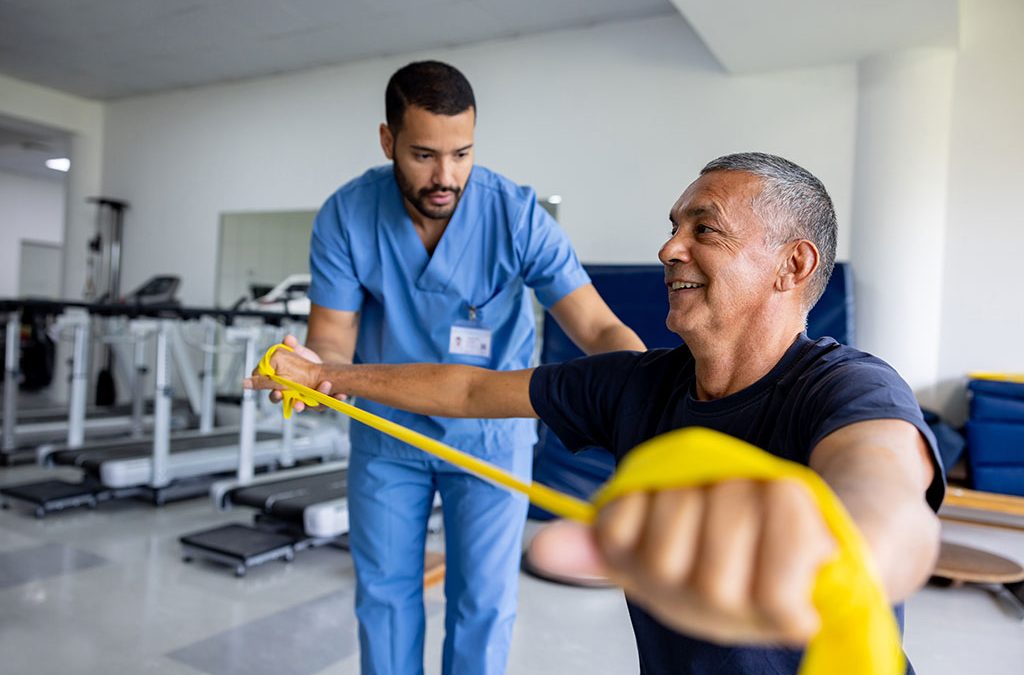Not All Physical Therapy Is the Same: Tailored Care for Unique Healing Journeys
When navigating the road to recovery, it’s important to understand that physical therapy isn’t a one-size-fits-all approach. Just as every patient’s body and experience is unique, the type of physical therapy that will best support your healing will differ from person to person. Whether you’re recovering from surgery, managing a chronic condition, or rebuilding strength after an injury, knowing your options can empower you to take charge of your well-being.
The Many Faces of Physical Therapy
Physical therapy is a dynamic field with a wide range of specializations. Of course, it is more convenient to go to a location close to your home or work, but we want to make sure you go to the right physical therapist for your problem. Some therapists emphasize manual techniques and hands-on adjustments, while others focus on exercise-based rehabilitation or even innovative approaches like aquatic therapy. Different approaches are needed and designed with your specific goals in mind. For instance, an orthopedic physical therapist will often concentrate on restoring mobility and strength in injured joints and muscles, while a neurological specialist might focus on rebuilding pathways that have been affected by a stroke or neurological disorder. This diversity ensures that your treatment plan is as unique as your condition.
Why Does It Matter?
Imagine if every doctor prescribed the same medicine regardless of your symptoms—it wouldn’t work because each patient’s body and situation is different. In the same way, targeted physical therapy addresses your unique challenges. Here are a few reasons why a tailored approach is crucial:
- Individualized Care: Personalized therapy plans consider your medical history, current fitness level, and personal recovery goals, ensuring that every exercise or treatment is purposeful.
- Specialized Knowledge: Therapists who focus on a particular area have deeper expertise in that field, leading to better outcomes for conditions that require nuanced care.
- Active Participation: When your therapy is tailored to your needs, you are more likely to engage fully in your treatment, ask informed questions, and adhere to the plan, which can lead to quicker recovery times.
How to Choose the Right Physical Therapy for You
Not all clinics and practitioners offer the same services. With a decade of experience in northwest Ohio, I know the physical therapist and various companies and what they offer. I almost always direct my patients to a specific physical therapist at a specific location.
What to Expect in Your Sessions
During your initial evaluation, your therapist will spend time understanding your history, assessing your current limitations, and discussing your goals. This information forms the basis of a treatment plan that might include a variety of elements such as:
- Manual Therapy: Including massage or joint mobilization, helping reduce pain and increase range of motion which are a great adjuvant to exercises.
- Exercise Prescription: Carefully designed routines that improve strength and endurance.
- Modalities: Use of tools like electrical stimulation or heat and cold therapy to ease discomfort. I typically don’t use a lot of modalities for my patients, but have the therapist focus on corrective exercises
- Patient Education: Guidance on posture, ergonomics, and lifestyle adjustments that support lasting improvements.
Each component is chosen to meet your specific needs, ensuring that the therapy you receive is truly comprehensive and customized.
Embracing Your Unique Recovery Story
Your journey to recovery is not just about healing a body part—it’s about allowing you to do what you want to do physically, confidence, and quality of life. By understanding that not all physical therapy is created equal, you become an informed advocate for your own health. Take the opportunity to discuss your treatment options with me, ask about the therapist’s specialized training, and don’t hesitate to seek second opinions until you find a fit that resonates with your recovery goals. Physical therapy is a partnership. The more you know, the better equipped you will be to navigate your path forward. Embrace the idea that your treatment should be as unique as you are, and feel empowered to ask the deeper questions that lead to personalized care.

